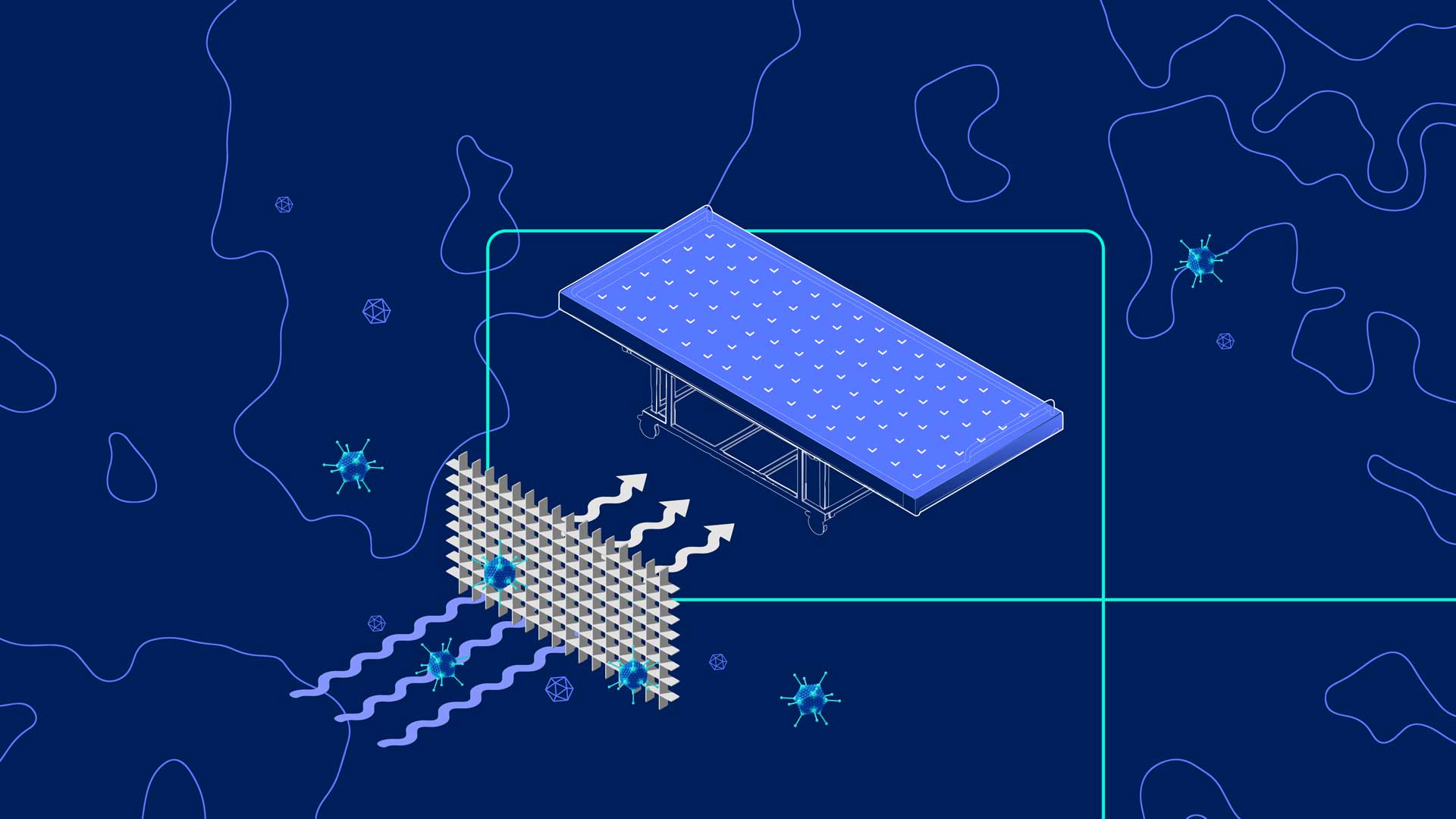The world is heading for a food crisis.
The global population is set to grow by two billion within the next 20 years, and demand for food is predicted to be 60% higher.
At the same time climate change, the spread of cities and soil degradation will have shrunk the amount of land to grow what we eat.
The solution to global starvation, however, might be found in a shed in Invergowrie.
At the James Hutton Institute in Perth, a company is developing a system of vertical farming.
This is where food is grown in stacks in environmentally-friendly towers.
The revolutionary idea has been hailed as the future of food and is predicted to be one of the early steps on a journey which could end with our crops being grown in city-centre skyscrapers.
That’s the view of David Farquhar, the CEO of Intelligent Growth Solutions, the company developing the new farming technique.
“At the moment we’re growing broccoli seedlings, potato seedlings and strawberry seedlings for local farmers,” he explained.
“We’ve got all the way to growing actual strawberries. We’re growing things like pea shoots, baby kale, baby celery, fennel, coriander, parsley, basil, and every herb you can possibly imagine.
“These are things which would normally be grown in a Mediterranean climate.
“Imagine you’ve taken a field and cut it up into snooker table-size rectangles. You put the rectangles in a box, stack them 10 metres high and put the weather in.
“Then you control that weather via your mobile phone.”
It sounds simple but at Intelligent Growth Solutions the vertical farms, which are around 10 metres high, see cutting-edge techniques being used to grow a variety of crops.
The system attracted £5.4 million worth of investment last month, with one American agri-tech investment company enthusing “nothing else can touch” the Perth initiative.
David hopes to develop pre-packaged farming “towers” which can be installed almost anywhere – from existing farms to modern city centres.
Now everyone from governments to businesses to local farmers is keen to employ his services.
“In Singapore there’s very little arable land,” added David. “In Saudi Arabia, all you’ve got is desert. In the Cayman Islands, it costs £70 for a kilo of basil because it has to be flown in,” added David.
“The amount of miles food has to travel is expensive and bad for the environment.
“Vertical farms could solve these problems.
“Farmers want to grow seedlings for things like potatoes, broccoli and cauliflower more efficiently and cleanly. A lot of seedlings we import are diseased or have pests – we have to throw it away. With our system, we can provide seeds without diseases or pests.”
Food producers are keen to reap the benefits of vertical farming, too. And retailers love the system because it produces fruit and vegetables which have a longer life.
“Because we don’t use chemicals, retailers have suddenly realised that we could salad for them that doesn’t require to be washed,” David explained.
“And what that will do is it will cook between five and seven days extra on to the shelf life.
“We are using no chemicals anywhere in the vertical farm. Everything is grown on an organic basis — although we can’t actually we can’t actually claim it’s organic, because we’re not growing the crops in soil.
“There are no pesticides, no chemicals, nothing. It just grows in peat or it grows in coconut matting.
“That’s the same stuff used if you have a hanging basket in your garden.”
Farming in towers rather than fields may not seem natural but neither is the current state of how we grow the food we eat, according to David.
And he branded those who would rather stick to traditional farming as being stuck in the past. “You will always get Luddites, in any sector,” David added.
“In offices you use computers but there’s always someone who wants to go back to an older system.
“There will always be people yearning for the past but people are going to taste the quality of these crops, and realise it is extremely clean as well as being very, very tasty.
“And then there is the carbon footprint. You can go to the supermarket at any time of the year and pick up a packet of blueberries which have come from Peru, Uruguay or somewhere ridiculous. These have been flown here by jet.
“That is nuts. You can get on your high horse about this type of food, but please stop eating this stuff, or only eat fruit and vegetables when they’re in season – which is what we used to do.
“We’re lacking enough Vitamin C in our diets as it is!
“We keep hearing about how much food is thrown away. Well, if we can solve those kind of problems, then that’s pretty exciting.
“This is never going to replace the farmer growing barley but it might help the ones growing potatoes and broccoli and cauliflowers and soft fruits. It might well help protect these jobs.”
The food produced in vertical farms has also been given the thumbs up by food experts in terms of safety.
“As for the quality? Well, Dundee City Council sent one of their microbiologists to come and run tests on the crops,” said David.
“They said, it’s just about the cleanest if ever seen. And so it’s approved for human consumption. And I’ve actually got a tray of basil in the boot of my car.
“I’m taking it home, my wife is going to make pesto with it tonight. It tastes fantastic.”
Source: https://www.sundaypost.com/fp/weve-gone-vegetarian-and-even-vegan-but-soon-we-could-be-going/






.jpg)